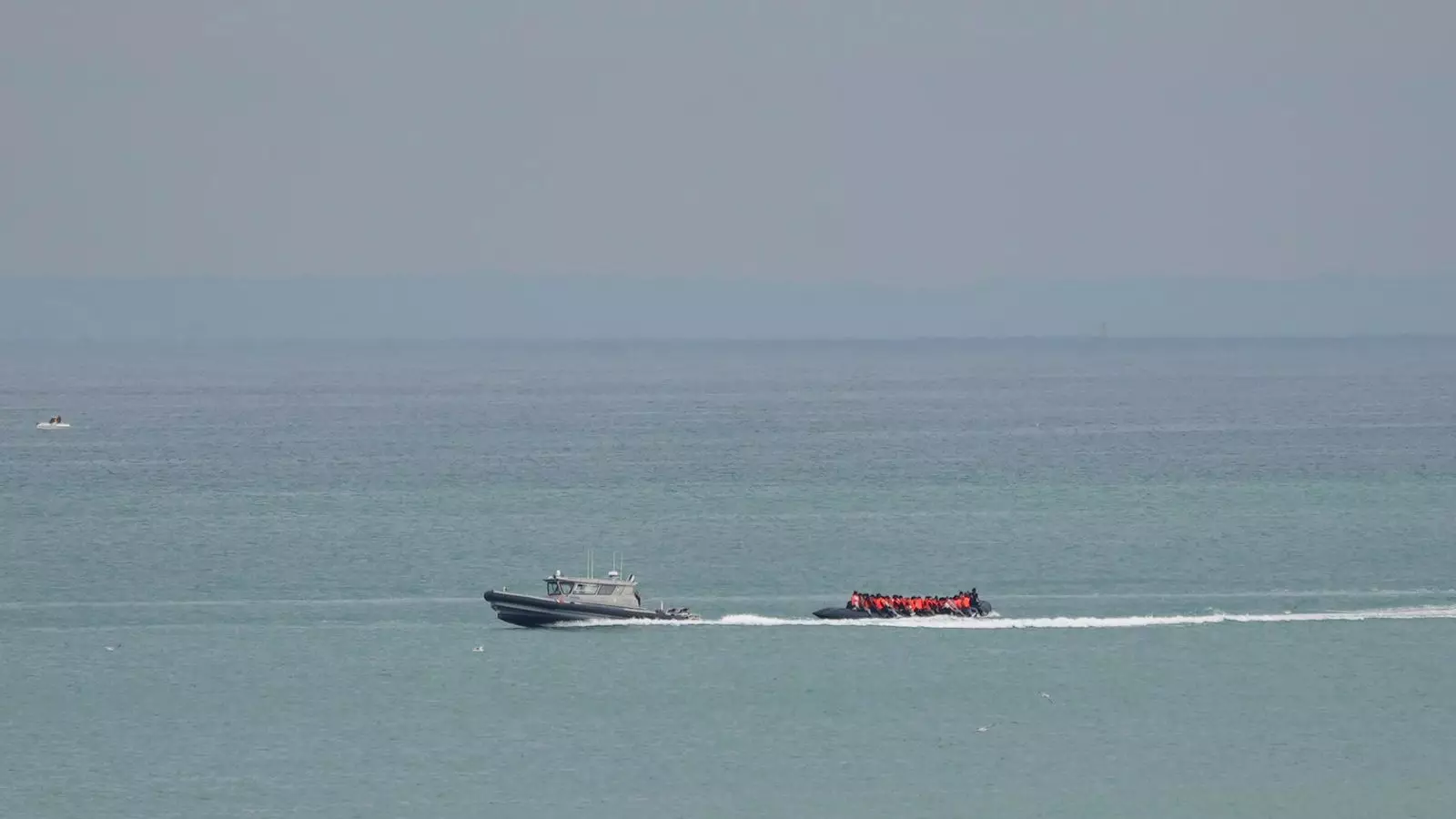The English Channel, once celebrated for its scenic beauty, now serves as a backdrop for a devastating humanitarian crisis. Recently, eight migrants lost their lives while attempting the perilous journey from France to the UK, a tragic reminder of the risks faced by those fleeing hardship. The incident occurred near Ambleteuse in the Pas-de-Calais region, where officials confirmed the loss overnight. Despite the tragic loss of life, the French authorities were able to rescue 45 survivors from the disaster, a small beacon of hope amid an otherwise harrowing tale.
In the 24-hour window leading up to this tragedy, French rescue teams were actively saving desperate individuals attempting to reach British shores. Reports show that around 200 migrants were rescued off Calais, demonstrating the urgency and scale of the issue. Symptoms of distress came from those in unseaworthy boats, emphasizing the desperate conditions that force these individuals into such dangerous crossings. The government’s response to this crisis dictates a closer inspection of both the motives behind these journeys and the inadequacy of established safety measures.
Undeniable Patterns of Risk
The increasing frequency of these tragedies cannot be ignored. French authorities reported monitoring 18 separate attempts to launch boats within the same day, a clear indication that, despite dangers, the desire for a better life in the UK drives people to take unimaginable risks. The loss of life over the past year stands as a stark testament to the dire conditions from which these individuals flee. The year is already witnessing over 30 fatalities among those attempting the crossing, with the latest disaster marking the deadliest incident recorded thus far.
Amid this ongoing crisis, tragic stories are becoming alarmingly commonplace. Earlier this month, a boat carrying migrants ripped apart, resulting in the deaths of at least 12 individuals, including women and children. The harrowing image of struggling migrants in makeshift vessels echoes the sentiments of urgency and despair experienced by countless individuals. This non-stop cycle of misery raises questions about how authorities can better manage the crisis to prevent further loss of life.
As the crisis continues to escalate, political responses may prove detrimental. British Foreign Secretary David Lammy described the situation as “awful,” echoing the sentiments of many who are confronted with the grim realities of migration. This acknowledgment, however, must be accompanied by actions that reach beyond merely condemning the humanitarian disasters. Both British and French governments need to take a firmer stance on the root causes of the migration crisis while also establishing safe routes for asylum seekers.
Steve Valdez-Symonds, Director of Refugee and Migrant Rights at Amnesty International UK, provides a sobering critique of the governmental response. He argues that the current strategies—predicated on dismantling smuggling gangs—fail to address the underlying issues that lead individuals to risk their lives. Asylum routes must be constructed that protect vulnerable individuals, providing a safe passage instead of forcing them into dangerous situations. This modern approach must involve collaboration across countries to find lasting solutions, thus sharing the responsibility of protecting human lives.
As we reflect on this recent tragedy, the pressing need for a reformed approach to migration becomes clearer. Establishing safe options for migrants is not merely a compassionate step; it is a vital necessity. Potential policies must be reexamined to ensure that they resonate with the principles of humanity and dignity. The ongoing loss of lives in the Channel underscores that without meaningful policy changes, these heart-wrenching tragedies will persist.
The call for reform extends beyond political rhetoric; it beckons for collective action across nations. For the lives encountered in perilous crossings, their stories must ignite widespread awareness and motivate hard-hitting discussions that prioritize safety over deterrents. The English Channel should not be a graveyard; it signifies a lifeline for individuals seeking refuge from persecution. It is time for governments to work holistically to prevent repeats of such tragedies and to protect those who dare to dream of a life beyond their current suffering.

Leave a Reply